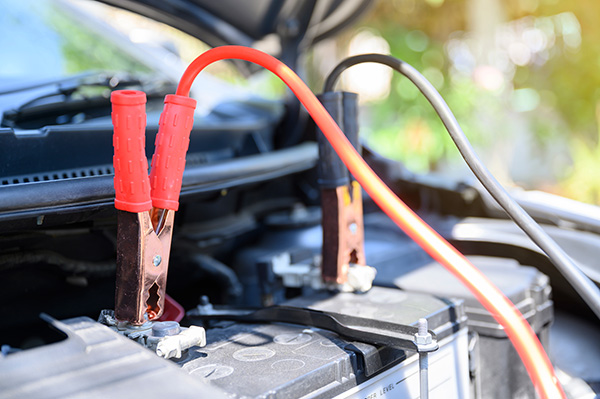
Few things are as frustrating as walking out to your car, turning the key, and... nothing. A dead car battery can catch anyone off guard, but the good news is that your vehicle often gives you warning signs long before it reaches that point. Knowing how to spot these symptoms can save you from being stranded with a non-starting car. So, how do you know if your car’s battery is dying?
1. Slow Engine Crank
Ever noticed that your car seems sluggish when you try to start it? This is often the first red flag. When your battery is weak, it struggles to supply enough power to turn the engine over. Instead of the usual smooth ignition, you may hear a slow crank followed by the engine struggling to fire up. This hesitation can be a clear indicator that your battery is nearing the end of its life. If this is happening consistently, don’t wait—get your battery tested or replaced before you’re left with a car that won’t start at all.
2. Dim or Flickering Headlights
Another telltale sign of a dying battery is dimming headlights. Your battery powers your car’s electrical systems, including the headlights. When it’s running low on charge, the brightness of your headlights may diminish. You may also notice them flickering, especially when you’re starting the car. If your lights don’t seem as bright as they used to, it’s a good idea to check the battery.
This also extends to other electronics in your vehicle, like dashboard lights, radio, and even the power windows. If multiple electrical components are acting up, the battery could be the root of the issue.
3. Dashboard Warning Light
Modern cars are equipped with various sensors and systems to help diagnose potential problems. One of these is the battery warning light on your dashboard. When this light illuminates, it doesn’t necessarily mean your battery is completely dead, but it does mean there’s an issue with the charging system. It could be that the battery is not holding a charge properly, or there could be a problem with the alternator or another component of the electrical system.
Either way, if you see this light, it’s important to get your car checked by a professional as soon as possible to prevent any further issues.
4. Frequent Jump-Starts
If you find yourself needing to jump-start your car more often than usual, it’s time to pay attention. While it’s not unusual to require a jump-start after accidentally leaving the lights on, needing one repeatedly is a clear signal that your battery is on its way out. Constantly relying on jump-starts to get your car going isn’t just inconvenient—it’s also bad for your vehicle’s electrical system in the long run.
5. Corroded Battery Terminals
Pop the hood and take a look at your battery terminals. If you notice a white, ashy substance on them, that’s corrosion. Corrosion is a common issue and can reduce the battery’s ability to send power through the cables. While a bit of corrosion doesn’t necessarily mean your battery is dying, it can be a sign that it’s aging. Cleaning the terminals might help, but if the corrosion keeps coming back or is extensive, it might be time for a new battery.
6. Old Age
Car batteries aren’t designed to last forever. On average, they have a lifespan of three to five years, depending on usage and environmental factors. If your battery is approaching this age, it’s a good idea to have it tested, even if you’re not experiencing obvious problems. Proactively replacing an aging battery can prevent the inconvenience of a surprise failure.
7. Strange Smell Under the Hood
If you detect the odor of rotten eggs or sulfur coming from under your hood, it could be due to a leaking battery. A dying or damaged battery may leak gas, which creates that distinctive sulfur smell. This is a clear sign that the battery needs to be replaced right away, as a leaking battery can also cause damage to other components in your engine bay.
Experiencing any signs of a dying battery? Let Pete’s help. We offer expert diagnostics and battery replacements to ensure you never get stuck with a car that won’t start. Contact us today!